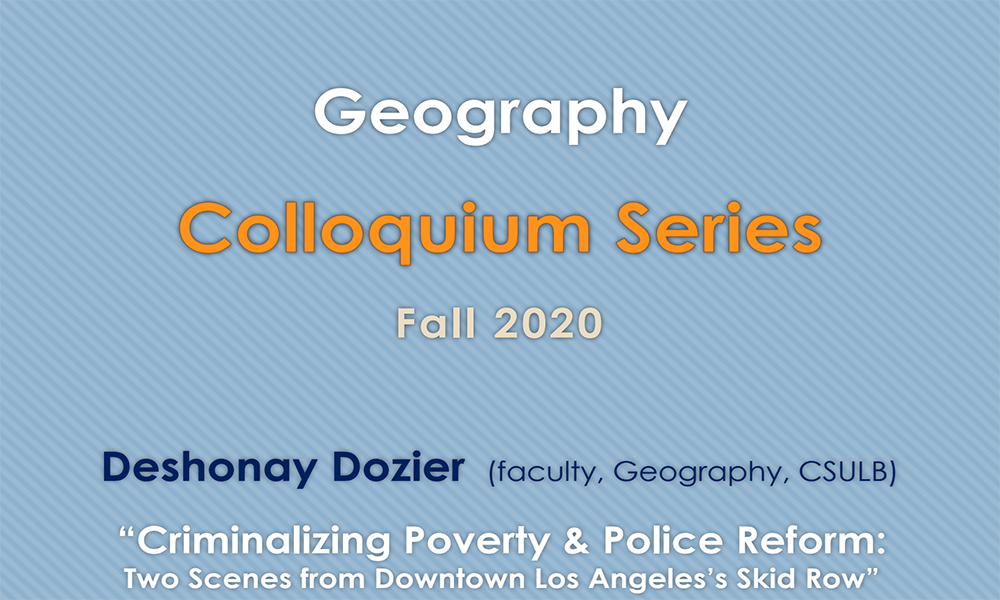Deshonay Dozier, a geography professor at Long Beach State, presented at the Geography Colloquium Series on Nov. 4 to discuss her research, which includes how a growing Indigenous community in Los Angeles reduced policing and led activism efforts in the 1960s.
Dozier’s presentation, “Criminalization and Alcoholism, Indigenous Sites of Sare in 1960s and 1970s Downtown LA,” told the story of Robert Sundance, a member of Lakota Sioux Tribe who led a lawsuit against public inebriation laws in Los Angeles.
The purpose of Dozier’s research was to see what the struggles Indigenous people who migrated to Los Angeles, like Sundance, were faced with and how people can “learn from their undoing of neglect and displacement.”
Dozier contextualized 1965 Los Angeles, which was undergoing a process of redevelopment through the Bunker Hill Renewal Plan.
“The plan aims to completely wipe away the presence of the poor and the institutions that supported them, including housing and services,” Dozier said.
The Bunker Hill plan, according to Dozier, listed three concerns necessary for urban renewal, which included alcoholism, tuberculosis and the conditions of buildings.
Public inebriation was a crime that the Los Angeles Police Department made mass arrests on, Dozier said, and called it a “carceral cycle of arrest, release, detox, arrest.”
Sundance, who came to Los Angeles due to the American Indian Urban Relocation Act, found himself met with “false promises” of the act, according to Dozier, and like many others, were stuck living in downtown Los Angeles.
After spending time in and out of jail because of public inebriation laws, Sundance decided to put a stop to them, Dozier said.
“Sundance brought to light that what could be considered a disability issue, addiction, should not be at the hands of the police, nor should people who experience alcoholism be treated with such punitive measures,” Dozier said.
During this time, the Indigenous community were also creating their own solutions.
“Yet other Indians found refuge in various institutions that indigenous people built to deal with the ongoing genocide of alcoholism by creating pathways to recovery,” Dozier said.
These programs invited all Indigenous people to enter who needed refuge, regardless of whether they were sober or not, a key difference in comparison to other alcohol recovery programs that required individuals to be sober.
Dozier explained that the work done by Indigenous people to create their own healthcare and treatment centers in Los Angeles was a form of decolonization.
Hyowon Ban, professor in the Department of Geography and organizer of the event, said in an email that the purpose of the Geography Colloquium series, “could provide up-to-date knowledge in geography and related disciplines to the attendees.”
The Geography Colloquium series have been ongoing since 2017, featuring presentations on female cartographers, a comparison between classrooms from two countries and migration and deportation.
The next event in the Geography Colloquium Series will be in Spring 2021.




